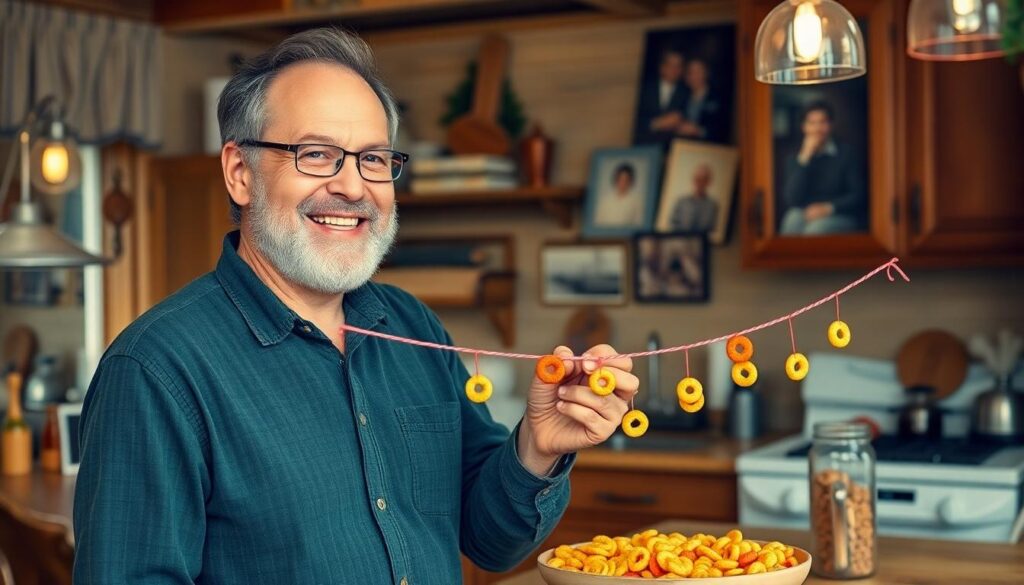We’ve all heard the classic “we were so poor” jokes that playfully exaggerate childhood hardship. These comical one-liners have been making us laugh for generations, reminding us that humor can be found even when recalling tough times.
In this collection, we’ll jump into the funniest “we were so poor” jokes that’ll have you laughing out loud. From makeshift toys to creative money-saving tactics, these jokes highlight the ingenious ways families cope with financial struggles while maintaining their sense of humor. Whether you’re looking for nostalgic chuckles or new material to share at your next family gathering, these jokes deliver the perfect blend of humor and relatability.
The All-Time Greatest “We Were So Poor” Jokes That Will Make You Laugh
- We were so poor, our bologna had no first name! It couldn’t even afford a proper introduction.
- We were so poor, we had to use Cheerios as Christmas decorations and hang them back in the box when the holidays were over.
- We were so poor, when I asked for a PlayStation, my parents gave me a wooden spoon and said, “Here’s your StirStation.”
- We were so poor, our front and back yards were the same yard—we just turned around.
- We were so poor, I thought “filet mignon” was a fancy French term for ramen noodles until I was 22.
- We were so poor, thieves broke into our house and left money.
- We were so poor, the cockroaches in our apartment were bringing their own food.
- We were so poor, we couldn’t afford to pay attention in school.
- We were so poor, the rainbow at the end of our street only came in black and white.
- We were so poor, I thought the dollar menu was fine dining.
- We were so poor, when someone asked what was for dinner, we’d place a picture of food on the table and say, “Use your imagination!”
- We were so poor, our echo couldn’t afford to come back.
- We were so poor, the bank repossessed our IOU notes.
- We were so poor, mice were bringing their own cheese to our house traps.
- We were so poor, we used to dream about being broke.
- We were so poor, when I got a paper route, we started using the newspapers as wallpaper.
- We were so poor, we had to borrow dust from the neighbors to make mud pies.
- We were so poor, I thought “layaway” meant lying awake worrying about how to pay for things.
- We were so poor, we couldn’t even afford to put our two cents in during conversations.
- We were so poor, our Christmas tree was so small, the presents had to go on top of it.
The Origin and Appeal of “We Were So Poor” Comedy

The “we were so poor” joke format has deeper roots than many realize, tracing back at least to the 1980s. Comedians like Billy Connolly pioneered this style, building entire comedy routines around hilariously exaggerated tales of childhood poverty.
Why These Self-Deprecating Jokes Resonate With Audiences
These jokes connect with audiences through their perfect blend of relatability and catharsis. We’ve found that the humor creates a shared experience where listeners can reframe their own hardships through laughter. The exaggerated struggles (like “we support daddy used to take us to Colonel Sanders lick other people’s fingers”) transform potentially painful memories into moments of communal joy.
This comedy style effectively disarms the stigma around financial struggles by taking vulnerability and reshaping it into something everyone can laugh about together. The extreme hyperbole—describing absurdly deprived childhoods with impossibly creative answers—creates a safe space where shared laughter becomes therapeutic.
Famous Comedians Who Popularized Poverty Humor
Ron White stands out as a master of poverty-themed comedy, using his distinctive storytelling approach to joke about small-town financial struggles where “everyone knew your family.” His ability to paint vivid pictures of economic hardship with a humorous twist has influenced countless comedians.
The Moron Brothers represent contemporary creators who’ve embraced this comedic tradition, crafting jokes about meals where recipes were simply “read aloud” instead of actually being prepared. Their approach highlights how this humor format persists because it balances exact, relatable details with universal experiences.
Billy Connolly deserves special recognition for helping establish this comedy subgenre, creating some of the most memorable poverty-themed routines that audiences still reference today. His exaggerated narratives about extreme scarcity (like having a “microwave” that was just an old popcorn maker) showcase how these jokes work best when they push believability to its limits while maintaining an emotional core that rings true.
Classic “We Were So Poor” One-Liners That Never Get Old

Food-Related Poverty Jokes
We were so poor that momma made us eat cereal with a fork so the next kid could reuse the milk. Our family meals often consisted of mayonnaise sandwiches because we couldn’t afford anything to go on them. Dinner time became especially creative when we had to pick our teeth for lunch just to find something to eat. Breakfast wasn’t any better since we couldn’t even afford the milk to go with our cereal. Many families claimed they were so poor that when they went fishing, they couldn’t afford to put bait on the hook—they just had to hope the fish were suicidal that day.
Household Item Poverty Jokes
We were so poor we had to drink tap water straight from the hose instead of having glasses. Our front door was made of cardboard rather than wood or metal like regular homes. Family bathrooms often required improvisation, with many joking they were so poor they used a bucket for a toilet. Furniture shopping wasn’t an option in our household—everything was either salvaged from curbsides or cobbled together from hand-me-downs. Some families joke they were so poor that when burglars broke in, they would leave money out of pity. Living conditions became so desperate that cockroaches moved out in search of better-off families.
“We Were So Poor” Jokes About Living Conditions

Housing and Neighborhood Jokes
We were so poor that our house had more holes than walls, serving as natural ventilation that we couldn’t afford to install. Our neighborhood was so rough that even the rats carried mace for protection when venturing outdoors. These housing jokes typically use absurd comparisons to highlight dilapidated living conditions that many families experienced during tough economic times. The humor often stems from exaggerating structural deficiencies like “We were so poor, our address was just ‘the third cardboard box on the left'” which makes light of serious housing insecurity issues. While these jokes can seem lighthearted, they sometimes risk reinforcing harmful stereotypes that conflate poverty with personal failure rather than acknowledging systemic barriers.
Weather and Seasonal Poverty Jokes
We were so poor that winter was our refrigerator, with food items simply placed on the windowsill during cold months to keep fresh. Summer brought its own challenges as shade became our air conditioning system when temperatures soared. These seasonal jokes often showcase resourcefulness, like “We were so poor, we used newspaper as blankets to stay warm through winter nights” – highlighting creative answers to basic comfort needs. Cold-weather variants emphasize inadequate heating access while summer-focused jokes underscore the lack of cooling systems in impoverished households. Though humorous, these jokes sometimes minimize the serious health risks that extreme weather conditions pose for low-income families who lack proper housing infrastructure. Many of these anecdotes demonstrate how financial hardship forces creative adaptation, though they rarely address the underlying causes of poverty that create such living conditions in the first place.
Family-Themed “We Were So Poor” Comedy Gold

Family-centered poverty jokes create some of the most relatable and hilarious comedy around. These generational jests often involve parents improvising through hardship or siblings bonding over shared deprivation, turning difficult memories into moments of laughter.
Sibling Rivalry Poverty Jokes
Siblings share a unique bond forged in the fires of childhood deprivation, creating perfect fodder for “we were so poor” humor. Brothers and sisters frequently joke about shared experiences like “licking Colonel Sanders’ fingers” instead of actually buying fried chicken, highlighting the absurdity of their situation. These comedic moments reveal how siblings often turned scarcity into solidarity, collaboratively transforming empty dinner tables into imaginary feasts through sheer creativity. The competitive nature of siblings also manifests in who can claim the most outrageous poverty experience, escalating the humor while strengthening their connection through shared adversity.
Parent and Grandparent Poverty Humor
Parents feature prominently in family poverty jokes, often depicted with remarkable ingenuity in the face of scarcity. Fathers become comically resourceful figures, repurposing trash as toys or creating entertainment from literally nothing. Mothers appear as miracle workers, with jokes about them “reading recipes aloud as imaginary dinners” when the cupboards were bare. These anecdotes typically contain nostalgic exaggeration, romanticizing the struggle with sentiments like “our pockets were empty, but our spirits were full.” Grandparents take this nostalgic hyperbole even further, with their hardship stories growing more extreme with each telling, creating a generational one-upmanship that bonds families through shared laughter about collective resilience.
Modern Takes on Traditional “We Were So Poor” Jokes

Social Media’s Favorite Poverty Humor
TikTok has revolutionized how “we were so poor” jokes are shared, with millions of posts featuring exaggerated tales of financial hardship. These videos often use creative storytelling techniques to amplify the humor while maintaining the self-deprecating spirit of traditional poverty jokes. Creators frequently incorporate visual elements that weren’t possible in older joke-telling formats, making the content more captivating for digital audiences. Platforms like TikTok have become central hubs where these jokes evolve and spread rapidly, often gaining millions of views when they strike the right chord with viewers. The format allows for quick consumption of content that delivers punchlines efficiently through short-form videos that resonate with users scrolling through their feeds.
Millennial and Gen Z Spins on Classic Poverty Jokes
Younger generations have put their unique stamp on “we were so poor” humor by incorporating references to modern technology and contemporary concerns. Millennials and Gen Z often create content like the viral “Take from the Poor Give to the Rich” sketches that blend humor with pointed social commentary about economic inequality. Their versions frequently highlight the irony of expensive technology alongside financial struggles—jokes about being unable to afford groceries while making TikToks on $1,000 smartphones. These younger creators use familiar joke structures but infuse them with observations about modern financial challenges such as student loan debt, housing crises, and gig economy struggles. The relatable content serves as both entertainment and a form of communal coping, allowing viewers to find humor in shared experiences of economic hardship in today’s industry.
How to Craft Your Own “We Were So Poor” Jokes

Master the Art of Hyperbole
Creating memorable “we were so poor” jokes starts with mastering hyperbole. We’ve found that exaggerating conditions to an absurd level makes them comically believable while maintaining a connection to reality. Try taking a regular situation and pushing it to its extreme limit. For instance, instead of saying “we couldn’t afford nice clothes,” amplify it to “we were so poor, our hand-me-downs came with inheritance tax.” The more outlandish yet somehow relatable your exaggeration, the funnier your joke will land with audiences.
Connect with Familiar Experiences
We’ve learned that the most successful “we were so poor” jokes reference common experiences that most people understand. Start by identifying universal elements of daily life—food, housing, clothing, or entertainment—then twist them to fit the poverty theme. For example, “We were so poor, momma would tie a string to a piece of bacon and tie the other end to a hook in the ceiling” works because everyone understands the concept of savoring food, but the exaggeration creates the humor. Your audience will appreciate jokes that touch on shared experiences while taking them in unexpected directions.
Create an Unexpected Twist
The punchline delivers the payoff in any good “we were so poor” joke. We recommend building anticipation with your setup before delivering a surprising twist that catches listeners off guard. Consider the joke: “We were so poor, burglars used to break in our house and leave money.” This works brilliantly because it reverses the expected outcome of a break-in. Your twist should subvert expectations while maintaining logical connection to the poverty theme, creating that perfect moment where surprise meets recognition.
Keep It Light-Hearted
While poverty itself isn’t funny, we’ve observed that successful jokes maintain a lighthearted tone that focuses on creativity and resilience rather than genuine hardship. Avoid jokes that might feel mean-spirited or that mock actual suffering. Instead, concentrate on the ingenious ways people overcome challenges. For example, “I was so poor growing up, my favorite food was ice” works because it highlights resourcefulness rather than desperation. Your jokes should celebrate the human spirit’s ability to find humor even in difficult circumstances.
Test and Refine Your Material
We’ve discovered that crafting great “we were so poor” jokes requires testing them with different audiences. Start by workshopping your jokes with trusted friends who’ll give honest feedback. Pay attention to which punchlines get immediate laughs and which ones fall flat. The joke “We were so poor, our pockets were ghost towns” might resonate differently depending on your audience’s background and experiences. Remember to adjust your delivery timing and emphasis based on reactions, gradually refining your jokes until they consistently hit the mark with various listeners.
When “We Were So Poor” Humor Crosses the Line

While “we were so poor” jokes can provide comic relief and shared connection, understanding when this humor becomes inappropriate is crucial. Certain approaches to poverty-based comedy can reinforce harmful stereotypes, mock genuine suffering, or trivialize serious socioeconomic issues that affect millions of people worldwide.
Mocking Real Suffering
Poverty jokes cross the line when they mock actual hardship rather than using absurdity for humor. Stories that ridicule genuine struggles like hunger, homelessness, or lack of healthcare fail to acknowledge the severity of these conditions. Making light of situations where people truly couldn’t afford medical care or adequate nutrition transforms real suffering into casual entertainment, which damages those who have lived through these circumstances.
Reinforcing Harmful Stereotypes
Jokes that lean on negative stereotypes about low-income communities perpetuate damaging misconceptions. Comedy that portrays poor people as lazy, uneducated, or morally deficient contributes to societal stigma. These harmful characterizations ignore the complex factors that contribute to economic hardship and can reinforce discriminatory attitudes toward disadvantaged groups.
Ignoring Systemic Issues
Humor becomes problematic when it suggests poverty is solely a personal failing rather than acknowledging systemic factors. Jokes that imply economic hardship stems exclusively from individual choices overlook structural inequalities like wage stagnation, lack of affordable housing, and inadequate social support systems. This framing can subtly shift blame to those experiencing poverty rather than recognizing broader societal issues.
Lacking Contextual Awareness
The audience and setting significantly impact whether poverty humor is appropriate. Sharing “we were so poor” jokes in mixed company without understanding others’ backgrounds can unintentionally cause pain. Material that might be received as good-natured commiseration among friends with similar experiences can feel insensitive or mocking when delivered to those currently struggling financially.
Cultural Appropriation of Hardship
Appropriating hardship experiences you haven’t lived through for comedy can be especially problematic. People who haven’t experienced important financial struggles using poverty as a punchline may come across as trivializing real issues. This approach often lacks the nuanced understanding that comes from lived experience, resulting in jokes that feel inauthentic and potentially exploitative.
The Therapeutic Value of Laughing About Hard Times
“We were so poor” jokes have stood the test of time because they transform hardship into humor. They’re more than just punchlines – they’re celebrations of human resilience and creativity in difficult circumstances.
Whether shared at family gatherings or trending on TikTok these jokes help us process challenging memories through laughter. They create connections across generations and economic backgrounds while reminding us that sometimes the best response to hardship is a good laugh.
As you create your own poverty jokes remember to keep them lighthearted honor genuine struggles and focus on the ingenious ways people overcome obstacles. After all it’s this spirit of resilience that makes these jokes endure and continues to bring smiles to faces everywhere.
Frequently Asked Questions
What are “we were so poor” jokes?
“We were so poor” jokes are humorous, exaggerated anecdotes about childhood financial struggles that use hyperbole to transform difficult memories into comedy. These self-deprecating jokes typically follow a format of increasingly absurd claims about poverty, allowing people to find humor in past hardships while celebrating family resilience and creativity in tough times.
When did “we were so poor” jokes become popular?
These jokes gained popularity in the 1980s, with comedians like Billy Connolly creating entire routines around exaggerated tales of childhood poverty. The format has evolved through generations, with each adding their unique spin. Today, these jokes have found new life on social media platforms like TikTok, where visual elements enhance the traditional verbal format.
Why do people find “we were so poor” jokes funny?
People find these jokes funny because they blend relatability with extreme hyperbole, creating a form of catharsis. The absurd exaggerations transform potentially painful memories into moments of laughter, helping people process difficult experiences through humor. They also create a sense of community by highlighting shared experiences and celebrating resilience in the face of hardship.
What are common themes in “we were so poor” jokes?
Common themes include food scarcity (eating imaginary meals), household improvisation (repurposing items for multiple uses), dilapidated living conditions (houses with extreme structural issues), rough neighborhoods, seasonal struggles (winter/summer without proper utilities), and family dynamics (sharing limited resources among siblings). Modern versions often incorporate technology references and economic inequality.
How can I create my own “we were so poor” jokes?
To craft effective “we were so poor” jokes, master hyperbole by starting with a relatable situation and exaggerating it to absurd levels. Connect with universal experiences like food, housing, or family dynamics. Create unexpected twists that surprise listeners, and maintain a light-hearted tone that celebrates resilience rather than mocking genuine hardship. Test your jokes with different audiences to refine them.
When are “we were so poor” jokes inappropriate?
These jokes become inappropriate when they mock real suffering, reinforce harmful stereotypes about poverty, or ignore systemic issues that contribute to financial hardship. Be aware of your audience’s backgrounds and avoid sharing these jokes in mixed company where they might cause pain. Never appropriate or trivialize experiences you haven’t lived through yourself.
How have social media platforms changed “we were so poor” humor?
Social media, especially TikTok, has revolutionized these jokes by adding visual elements to enhance storytelling. Creators use props, settings, and facial expressions alongside traditional verbal delivery. These platforms have also enabled wider sharing and community-building around this humor, allowing younger generations to develop their own variations that reflect contemporary economic challenges.
What makes these jokes resonate across generations?
These jokes resonate across generations because financial struggles are a universal experience, though they manifest differently in each era. They provide a framework for discussing hardship while highlighting human creativity and resilience. Each generation adapts the format to reflect their unique challenges, from Depression-era scarcity to Millennial housing crises, maintaining the core appeal of finding humor in adversity.







